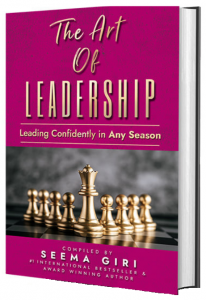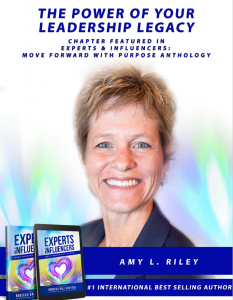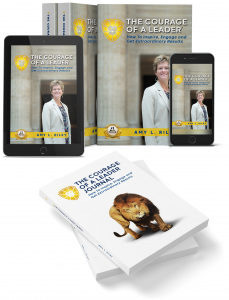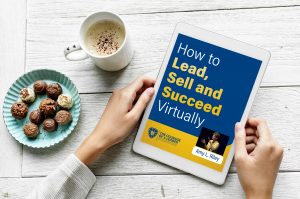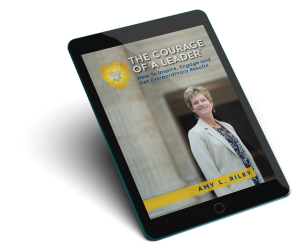Today, on The Courage of a Leader podcast, you can be inspired and impressed by Natasha Miller Williams, a speaker and a writer who brings data and insights together to advance the conversation about inclusion in the workplace.
Natasha is finding ways to improve how we all relate to each other, and the opportunities that we can create for everyone.
Listen in as she shares her insightful and practical approach for any individual to successfully challenge a system.
About the Guest:
Natasha Miller Williams is a speaker and a writer who brings data and insights together to advance the conversation on inclusion in the workplace. Her career has spanned many aspects of business, but what matters most to Natasha is finding ways to improve how we all relate to each other and the opportunities we can create for everyone.
Natasha shares her perspective and research on belonging, self-expression, and organizational resilience at keynotes, panels and workshops. She’s been a guest speaker for The Conference Board, Society for Human Resource Management, DiversityInc, DiversityMBA, Human Capital Institute, and many talent, inclusion and performance conferences.
She is recognized as one of Crain’s Notable DE&I Executives, DiversityMBA Magazine’s Top 100 Executive Leaders and Top 100 Women of Influence. Natasha has been featured in several career and lifestyle magazines including Black Enterprise and SharpHeels. She sits on the editorial board for Training Industry Magazine and on the board of directors for the Village of Oak Lawn’s Chamber of Commerce.
About the Host:
Amy L. Riley is an internationally renowned speaker, author and consultant. She has over 2 decades of experience developing leaders at all levels. Her clients include Cisco Systems, Deloitte and Barclays.
As a trusted leadership coach and consultant, Amy has worked with hundreds of leaders one-on-one, and thousands more as part of a group, to fully step into their leadership, create amazing teams and achieve extraordinary results.
Amy’s most popular keynote speeches are:
- The Courage of a Leader: The Power of a Leadership Legacy
- The Courage of a Leader: Create a Competitive Advantage with Sustainable, Results-Producing Cross-System Collaboration
- The Courage of a Leader: Accelerate Trust with Your Team, Customers and Community
- The Courage of a Leader: How to Build a Happy and Successful Hybrid Team
Her new book is a #1 international best-seller and is entitled, The Courage of a Leader: How to Inspire, Engage and Get Extraordinary Results.
https://www.linkedin.com/in/amyshoopriley/
Link mentioned in the podcast
The Inspire Your Team assessment (the courage assessment): https://courageofaleader.com/inspireyourteam/
Thanks for listening!
Thanks so much for listening to The Courage of a Leader podcast! If you got inspired and/or got valuable leadership techniques you can use from this episode and think that others could benefit from listening, please share using the social media buttons on this page.
Do you have questions or feedback about this episode? Leave a comment in the section below!
Subscribe to the podcast
If you would like to get automatic updates of new The Courage of a Leader podcast episodes, you can subscribe to the podcast on Apple Podcasts. You can also subscribe in your favorite podcast app.
Leave us an Apple Podcasts review
Ratings and reviews from our listeners are extremely valuable to us and greatly appreciated. They help our podcast rank higher on Apple Podcasts, which helps us ignite The Courage of a Leader in more leaders! Please take a minute and leave an honest review on Apple Podcasts.
Teaser for next episode
Tune in next to discover Inspiring Leadership Lessons from Top Athletes: Insider Secrets to Mental Toughness and High Performance from a 2x Olympic Medalist, Katie Zaferes.
Transcript
Natasha Miller Williams is a speaker and a writer who brings data and insights together to advance the conversation about inclusion in the workplace. Her career has spanned many aspects of business. And what matters most to Natasha is finding ways to improve how we all relate to each other, and the opportunities that we can create for everyone. In this episode, she shares her insightful and practical approach for any individual no matter where they sit in an organization to successfully challenge a system. I'm glad you're here to learn how to be a S.E.E.R, an acronym you will learn about shortly.
Amy Riley:Welcome to the courage of a leader podcast. This is where you hear real life stories of top leaders achieving extraordinary results. And you get practical advice and techniques, you can immediately apply for your own success. This is where you will get inspired. And take bold, courageous action. I'm so glad you can join us. I'm your host, Amy Riley. Now, are you ready to step into the full power of your leadership and achieve the results you care about most? Let's ignite the courage of a leader.
Amy Riley:Natasha, welcome, I am excited to have this conversation with you. We have decided to talk about systemic change in D and I. And I know the title of your TEDx Talk is one person can challenge an established system. And I love that. Because I think when we're talking about systemic change, a lot of leaders sitting in different places in the organization might think, oh systems, that's the policy makers. That's the head of the division. What brought you to this belief that one person can challenge an established system?
Amy Riley:Natasha Miller Williams: Yeah, thank you. Thank you so much for the invite. I'm excited to talk about this with you today. And what brought me to this was just sometimes being that one person, I often felt like I was representing an unpopular opinion, um, whether it was in a meeting rooms or long email threads, that I needed to have the courage to say, what wasn't being said. And we all always realize that systemic change really is how its policies and organizations. But sometimes it's really just taking a look at how decisions are being made. And each decision starts with just one conversation at a time. And I just wanted to just stop and say, Hey, we all represent a point of view in our organization. And if we can just say, I can be the person that can challenge something by just representing my own point of view.
Amy Riley:I really like that Natasha. And yeah, when you say it that way, there are decisions being made everywhere throughout the organization. Right, and we can influence those we can put our voice forward, and the Wii and everyone.
Amy Riley:Natasha Miller Williams: Yeah, I mean, this, this really is a series of decisions, right? Like, you know, when you really break it down to like, how was this policy put into effect? You know, how was the system put into effect? How did we come up with this new product idea, like all of it was really a combination of a lot of different decisions, and people representing their own point of view, but not everyone always feels as comfortable sharing their point of view, because they may be a minority in the room. And so a lot of my TEDx was just based on wanting everyone to feel very comfortable sharing their point of view, whether because they are a minority, or because they have an unpopular opinion.
Amy Riley:Yes. So I'm hearing as we're talking to leaders in this podcast episode, both sides of the coin, having courage to speak up and share a view that might be different or might be unpopular, or you're saying hey, this is not right. This is not fair. This is not balanced. And also being that leader who makes it comfortable for people to share views that are different or that we haven't thought of Have we haven't looked at before first asking for them. And then being really careful about how we respond to them when they come up.
Amy Riley:Natasha Miller Williams: Yeah, the real responsibility of leaders is to set the tone so that those conversations can happen. You want to foster a more open and inclusive environment. I was just sharing a story with the group a few days ago, about the number of times that I've exited a meeting or exited a board room. And inevitably coming home and meeting. People want to do that check in and say like, what do you think this meeting just went? Yeah. You everybody likes that post check. They want to know, you know, how do you feel? Or what do you think and in my mind, it might be thinking, not always, but I might be sometimes they gain that the meeting didn't go well, whether I saw instances of over talking, or someone not getting a chance to get their point of view out or feeling like I myself with whatever position of you know, power or leadership that I have wanting to amplify someone's point of view, or all of these little things that you may observe, especially as a woman or as a person of color. And the same person that asked me like, Well, what do you think, and they may not have observed the same thing, it becomes very clear that it was almost like we were in two different rooms or two different meetings. And so what I believe that exceptional leaders can do is even if they didn't observe the same experiences that I observed, or have the same observations, to believe what I'm saying, yeah, be true. To take action to try to foster a more inclusive environment. For the next time like that, to me is the muscle of empathy. And that really helps to create a bridge for a more inclusive culture.
Amy Riley:That is a great lens for leaders to think about it. I know, in your talk, you present an acronym for those that want to choose to challenge and it's a S.E.E.R. And then acronym stands for See. Expect Express, Repeat. I wanted to talk about this with you. Because in seeing I might not have seen that, right? I might not have noticed, oh, so and so got talked over or somebody didn't get a chance to express their view. Yeah. So first of all, we can try to expand our awareness and be on the lookout for whose voices are getting into the conversation and into the decision making. And if I don't readily see it, I've got this opportunity when someone brings it to me to listen, express empathy, and really important that you said, believe
Amy Riley:Natasha Miller Williams: ya believe, and then take action to drive change that last piece is what's really critical. Because if I had shared now, if I have the courage, as a leader, myself, sits there my experience, it's really important now that whoever I shared with does their part has an ally, as a leader to take action, so that the next meeting is different. Because I've made them feel more vulnerable. They all leave this with you. For nothing to change the next time we're all together.
Amy Riley:Yes, yeah. So now you can change how you gather input in the meeting. You can go round robin, you can have a word for virtual you can have everybody chatted, right. And, and I'm hearing Natasha, if we're in a meeting, and we hear about this, and we all have the opportunity to go, wait, wait, no, I want to hear more of what Patricia is saying. Yeah, I don't want to miss this. This is piquing my interest.
Amy Riley:Natasha Miller Williams: Exactly. Oh, that's how that's how one person can begin to challenge a system.
Amy Riley:I love it. It's inspiring Natasha. We're gonna go through the rest of the acronym, but first I want to tell listeners more about you and your background. Natasha Miller Williams is a speaker and a writer who brings data and insights together to advance the conversation on inclusion in the workplace. Her career has spanned many aspects of business. And what matters most to Natasha is finding ways to improve how we all relate to each other and the opportunities that we can create for everyone. Natasha shares her perspective and research on belonging, self expression and organizational resilience and keynotes panels and workshops. She's been a guest speaker for the Conference Board, Society for Human Resource Management, Diversity Inc, Diversity MBA, Human Capital Institute, and many talent inclusion and performance conferences. She is recognized as one of Crain's notable DE&I executives, Diversity MBA Magazine's Top 100, executive leaders and top 100 Women of Influence. Natasha has been featured in several career and lifestyle magazines, including Black Enterprise and Sharp Heels. She sits on the editorial board for Training Industry Magazine, and on the board of directors for the Village of Oak Lawns Chamber of Commerce, you are involved that thank you for being here, Natasha.
Amy Riley:Natasha Miller Williams: Thank you. And I'm really excited to be here with you today.
Amy Riley:Thanks. One thing that you said in your TEDx talk that grabbed my attention, is that when we're seeing processes systems that are unfair, unbalanced, that they might even be systems that we had a hand in creating, they might be our own systems. Yeah. How do we see that Natasha, how is there not a huge blind spot there?
Amy Riley:Natasha Miller Williams: I think we all need to be open to the fact that, you know, systems need to be changed. And I actually found a quote, recently that really resonated with me and I wrote it down because I wanted to share it with you today. Right? It says, When I criticize a system, they think I criticize them. That is, of course, because they fully accept the system and identified themselves with it. We've been reflecting on this, quote, more and more. How can I be a part of the development of systems? without identifying myself too closely with them? What's the line between ownership and adoption of something without overly identifying myself with that, because then it becomes hard to evolve and change. And often, I think that's where we have the inability to, you know, see change, or sometimes we see the resistance when we're looking to create new systems. And so to the question that you asked around, you know, you were a part of the system that was in place, I think what's really important is to be able to take a step back, and to listen to new ideas. And I listen to new ideas, sometimes in my own household, with my children, you know, my husband and I have had systems in place that worked for us, you know, when our children were younger, but maybe those systems don't work anymore. Something as simple as the system of dinnertime, when we serve dinner before our children got involved in so many activities, and those systems don't work anymore, because now our children want to be involved in activities, and we have to adjust. And we have to hear their point of view, around the time that we're serving dinner, our expectations of when our children are coming in, and all of these things, you have to always adapt to the people that are a part of your broader ecosystem, and realize that if you're going to grow, you have to be open minded. And so that's just one small example of being open to change based on who's in the ecosystem with you.
Amy Riley:That's a really great example, Natasha, because when you talk about creating a ritual, practice around family time, right, we have dinner together, or we do this as a family. And you might have really important reasons for having created that system, the way that that works, right? Yeah. Well, we need to recognize that times are changing all around us in all realms of our lives, right? And notice, when are we getting attached to that? And identifying with that, and thinking, Oh, it's gotta go a certain way for these important reasons. But we can still have our important reasons. But yet, how does the system evolve in a way that works for all involved? For every dynamic, right, and still for those important reasons.
Amy Riley:Natasha Miller Williams: I was reading an article just this past week, and it was talking about organizations that are moving some education requirements from hiring. And that's a system that you think about, like what are the hiring requirements within your organization, and maybe at a point in time specific education requirements are necessary or what have a reason you require a bachelor's degree Are you required some very specific form of Musa but now, skills based experience may be what you need and demonstrates that someone he Slynt in the role. And this particular article was highlighting the organizations that had moved from an education requirement, new skills based requirement. And so that's really sahuagin a long standing system. But for very specific, unnecessary reasons. And so, you know, those are some of the things that I believe, translate to the workplace as well, when you think about challenging a system.
Amy Riley:Mm hmm. Agreed. And this seems like the perfect place to transition into the first E in the S.E.E.R acronym expect, what do we expect, I want would be a fair and balanced system in this case. So they're changing their expectations that you have at this education in order to be able to demonstrate these skills to be like, we expect you to have these skills, however, you developed them.
Amy Riley:Natasha Miller Williams: Exactly. Being they know what my TED talk, I say, know what you expect as an outcome. So what are they expect as an outcome, you know, they are looking for people that have the ability to add value to their organization, that's the outcome. And so, literally, they will continue to hire people that have education, as well, while opening up for people that can demonstrate the same through through skill. So I was really excited to see that and I can perhaps share one of the links, if it's something that you would include in your show notes.
Amy Riley:Absolutely. Absolutely. Let's do that. Yeah. And that brings me back to the family system, family dinner, right? What's What do we expect as an outcome? And made a connection time? Maybe it's time to, to, you know, understand what's going on in everybody's world? Maybe it's just a shared experience, right? What is that outcome that we expect? And what might be different ways to realize that outcome? Do that?
Amy Riley:Natasha Miller Williams: Yeah, you know, I can actually share building upon that dinner time is has become more complicated in my house, because of the types of things that my children are doing. And what I've realized now is that it's a lot easier to get the family together at breakfast. Okay, I didn't see her at 630 in the morning. And so you know, right now, all we're doing is having breakfast together. And so it's a change in routine. It's a new system, but we're having breakfast together as often as we can, on weekdays, and usually on Sunday morning, and so your family just has to evolve and create new routines, rituals and systems that work for you.
Amy Riley:Terrific. So Natasha is a no for your 6:30am meeting request. That is family time. This one my family. That's right. So the next II, I want to ask you about Natasha is Express. And you point out in your talk that we can express in different ways we can speak, we can write, we can bring allies in, we can you know, express to other influencers? How can we express in a way that has the best chance of being heard and acted on?
Amy Riley:Natasha Miller Williams: Yeah, this to me really leads into knowing your audience, you know, just the basics of communication and knowing your audience overall. I have really had to learn through. Like there's some bruising here. Yeah. Over the years of my work in DNI and change management, because I held a change management role a little bit earlier in my career, and just realizing that change takes time. And so I shared a quote with my husband last week, when I guess it's a little bit more of an expression than a quote, and it is that indifference leads to inaction. And so we were focusing on this quote, that indifference leads to inaction. And one of the hardest parts of change is that you know, when we come across as not caring, we lead to not taking any action at all, and I I believe that when you're the person that's on the front line, where you want to see is everybody mobilizing behind, you know what you're passionate about, right away. And it doesn't usually go that way. But the best thing that you can do when you're trying to drive change is to take the time to better understand what are the needs and the interests of the people that you're trying to bring along on this journey. Mm hmm. better understand your how to bring value to the people that you are working with. And so that's been my biggest learning in this work, is to find the value for the people that you are working with, and to bring everyone to the table at the same time. Excellent. Natasha,
Amy Riley:I was working with leaders actually earlier today about how to present up to their senior leaders to ask them to make a decision. And we talk about how important it is to understand what's top of mind for them. What what do they value, like you say? And how can you relate what you're asking for, to what's important to them. And I think this is interesting, when it comes to something we might be challenging in the realm of diversity, equity and inclusion, it might just feel like it's not right, this should be a different way. And it can feel like, gosh, I shouldn't need to think about that this person's voice should be included, we should be changing our recruiting practices, it's just something that should be done. And maybe we increase our chances of having something done, if we're speaking into what what's most important to them.
Amy Riley:Natasha Miller Williams: There was something that I heard recently, we were talking about this work. And he were just talking about some of the challenges that we face when we are talking to leaders, talking to people that are still learning or you know, a different stage of their learning. And she was basically saying that every organization can argue with wanting to have an environment where everyone grows and thrives and reaches their full potential. And so even if, you know, even if they are aspects of this, where someone has a lack of certainty around why you might be doing something, there's always something where someone might ask the question, well, why are we doing this? Or you know, does it make sense to have this particular program or initiative? If you get to the fundamental, why are we doing this? No person, leader or organization can argue with wanting to have a culture, wanting to have a workplace where every single person can grow Rive and reach their full potential. And ultimately, all of the pieces of what you're bringing together should work together to enable that. Yeah, so even if one piece doesn't make sense to you, they should be working together to foster that.
Amy Riley:Okay. So there's some some rationale, leaders that you might want to tie to. Yeah, every person thriving full potential, and we are all and rightfully so focused on engagement. Right, since we've had the great resignations. Since we've had quiet quitting, right. I think we're all tuned into how do we keep employees satisfied? How do we keep them engaged? How do we get their best ideas and their creativity? And it might be by making the change that you're advocating for?
Amy Riley:Natasha Miller Williams: Yeah, yeah, there's been a lot of our will even go so far as to say confusion in recent months about diversity and equity, and inclusion, and what does it mean and you know, looking at it like a pie and believing that, you know, it means more for some people and less for others and creating more opportunities here and less here and you know, just kind of like really looking at it in that way, zero sum game, as opposed to recognizing that the value and this work is to ensure that we are creating equity and the opportunities as I just mentioned, for average Want to be able to grow and thrive and reach their full potential, and to ensure that any system that we have in place, and our organization is fair, you know, for everyone, whether it's a people related system, or whether it's a purchasing system, and in terms of who we're doing business with, or whether it's some other type of system that's in place in our organization? I think we all at our core, want to feel proud and have a sense of integrity that we work for organization. That's fair.
Amy Riley:Yeah. Yeah. Yeah, indeed. So the R in S.E.E.R, Natasha is for Repeat, because we know there's a lot of work to be done here. And we might challenge and it doesn't work, we might challenge until a little bit gets accomplished. What would you say to folks who are feeling discouraged?
Amy Riley:Natasha Miller Williams: Yeah. Yeah, it's easy to get weary. I mean, some of the numbers around the turnover. Diversity offers, I think, reflect, you know, some of the weariness that you can have in this role. And even if you're not a diversity officer, and if you're just talking about change management, there's a lot of turnover and change management roles as well. Because whenever you're trying to exact change, and you're trying to move people along and get people to do new things, or learn new things, or new software, I think about how, how, how fatigued I am what I have to like, learn my new iPhone, which is like, I've went out and bought the new iPhone, and now I got to learn a new iPhone, and I'm like, oh, man, I'm so tired of this. And that's just like, range that I went and, and sought out myself. And so you know, people, people can be resistant to change. And so when I mentioned the R in repeat, and being a S.E.E.R, it's the mindfulness that you have to stay at it. We have to surround yourself with a network of people that believe in what you're doing that encourage you. And you have to be mindful of a bad system, or try to beat a good person. A bad system will try to beat a good person. But I strongly believe that a bad system cannot beat a good community of people. And so if you have a strong community of people committed to making change that you can,
Amy Riley:yeah, yeah, I'm hearing your next actions might be getting more people in your community. And I love that. Yeah, they have a support system. Yeah, it's important. I'm leading a cohort of women right now, inside of a program that's designed to accelerate careers, and to accelerate the careers of underrepresented populations inside of the organization. So they've got ethnic groups, and they've got gender groups, and we're talking about some of what we call headwinds, right things that can naturally get in our way, as females in the workplace. There's one that leader who is talking about how on her team of technical people, she's always given the role of talking to the stakeholders, or you're the relationship person because you're the female leader on the team, right? Not being seen for your technical expertise and a new seat, right? So so you're the female, you're gonna do the relationship thing, and talking about how I don't need to play that role just because I'm the female. So we keep talking about how to influence and I say this with leaders all the time, sometimes it's about like kind of throwing spaghetti at the wall like we do our leadership due diligence. I am working on influences situation, I'm trying different things and knowing that you're continuing to try and learning from those attempts, what influences what doesn't influence right so that the next time they talk about stakeholder updates, could they possibly not look towards her?
Amy Riley:Natasha Miller Williams: Yeah. Well, I that's, that's a powerful story and reflection, and I was just reading something that was talking about just in general, whether it's situations like that, or women being asked to take notes or like do other things that all fell into this broader case. category of what was actually being described as non promotable tasks that women will be asked to do. And at first, earlier in career, women will actually volunteer to do these things, and just say, you know, I'll be the one to do it. Um, whether because women may feel like we're good at these things, and we can do them fast. And then in this study went on to say that, even at a point in time when women stop volunteering to do it, if no one volunteers, women will volunteer, like when there's like the awkward silence, then women will volunteer first, before men are willing to volunteer, so then we're, you know, we'll go ahead and do it. And then even after that, I'd still was not a promotable TAs, even though we kind of stuck our neck out to do it. And so you know, all of this, you know, not serving us well in our career. And so then when do you have someone that actually goes out to say, like, I actually don't want to do this? And don't ask me, not only please don't ask me, you know, still continue to see women being asked to almost voluntold. And so you know, a really is problematic, you know, for women, and then also for, you know, different tasks that fall upon, under represented groups racially underrepresented groups, too. Can you lead the business resource group? Can you support the heritage, affinity mod and all of these different things? And does it really translate to something that actually helps our careers and feel? How can we work to ensure that, you know, we aren't put in those positions and find allies and sponsors? Who can help us, you know, in these conversations, so that, you know, we aren't continuing to repeat ourselves and be like stuck in an echo chamber around this?
Amy Riley:Yeah, yeah. Keep expressing keep expressing in new ways. Keep bringing new people into the conversation. Talk about the impacts, tie it to growth, thriving, and full, potential. So much great, practical information, Natasha, that you gave us I'm going to do a little recap here at the end about the S.E.E.R. acronym for a challenger, someone who wants to challenge a system, that's not fair. See, right, raise our awareness. Take a look. And if we're not seeing it, listen, when others bring it to us and believe them. Expect, know what you expect as an outcome. Get that clarity for yourself, or build that clarity with others. Express may increase our chances of being heard, and creating change if we know our audience, and we know their needs and their interests and how to speak into what they value. And then R repeat, know that there's naturally there's resistance to change out there. Right, refuel yourself, keep repeating because we need challengers. We need systems to shift. Thank you, Natasha, for being with me today on the Courage of a Leader podcast.
Amy Riley:Natasha Miller Williams: Thank you so much. I really appreciate it. This conversation this time with you today.
Amy Riley:Yeah, real great written. Glad to share. Thank you.
Amy Riley:Thank you for listening to the Courage of a Leader podcast. If you'd like to further explore this episode's topic, please reach out to me through the courage of a leader website at www.courageofaleader.com. I'd love to hear from you. Please take the time to leave a review on iTunes. That helps us expand our reach and get more people fully stepping into their leadership potential. Until next time, be bold and be brave because you've got the Courage of a Leader.


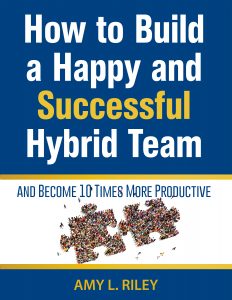
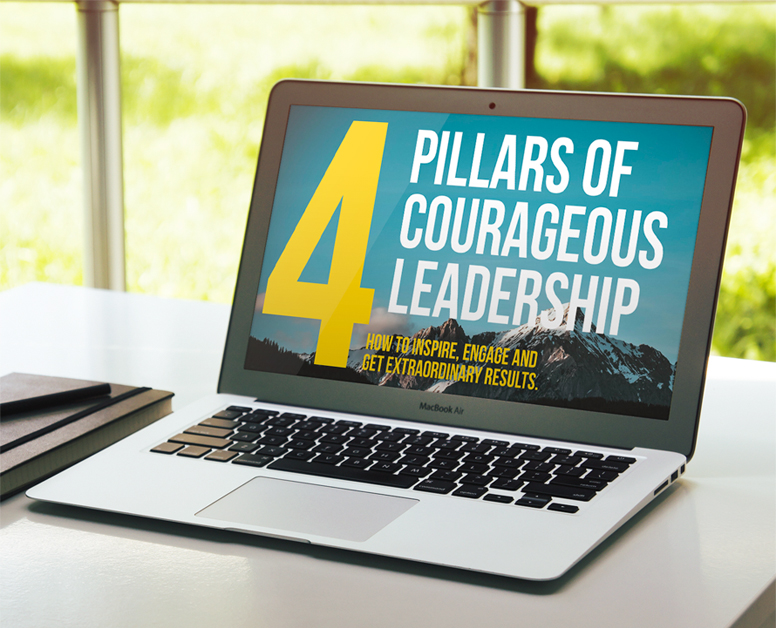 A Summary of The Courage of a Leader® 4 Pillars
A Summary of The Courage of a Leader® 4 Pillars